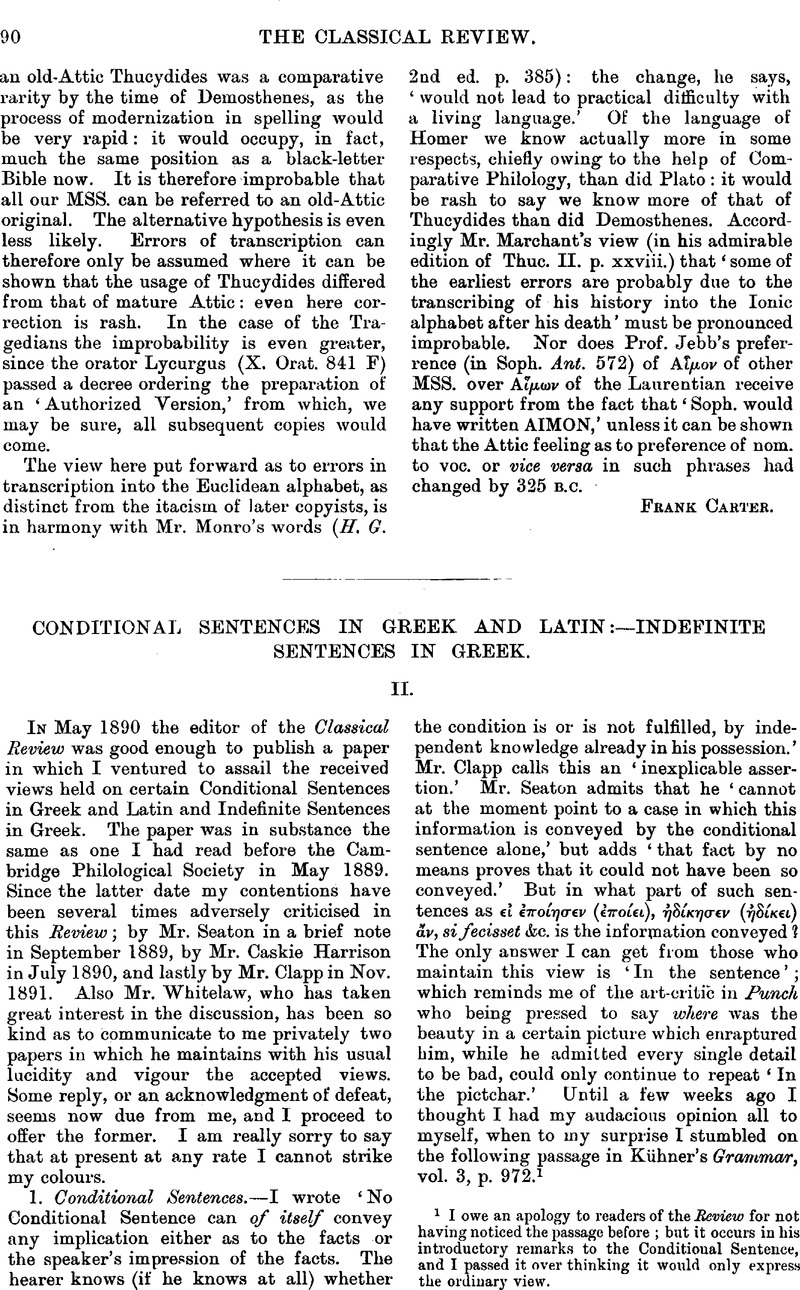No CrossRef data available.
Article contents
Conditional Sentences in Greek and Latin:—Indefinite Sentences in Greek
Published online by Cambridge University Press: 27 October 2009
Abstract

- Type
- Review Article
- Information
- Copyright
- Copyright © The Classical Association 1892
References
page 90 note 1 I owe an apology to readers of the Review for not having noticed the passage before; but it occurs in his introductory remarks to the Conditional Sentence, and I passed it over thinking it would only express the ordinary view.
page 91 note 1 Mr. Whitelaw's explanation of this passage is similar to the one ordinarily given of Hor. Sat. i. 3. 4 Caesar si peterct, non proficeret:— ‘I stood to prove or disprove to myself in my own person the doctrine that pain is no evil: if, after all my application to philosophy, I gave way to pain, then it would be proved [that would be proof enough: would be = ![]() ] that pain was an evil. And now, have devoted’ &c. He thinks the time referred to not present. Perhaps; but after all, my view of the sentences covers such passages as these: an independent conditional sentence is couched in one of the forbidden formulae, and the condition is not unfulfilled. I should translate:— ‘Suppose me not to have been able…, although I had applied myself…, that would be proof enough’ &c. The time of esset might be present, even though that of possem were past.
] that pain was an evil. And now, have devoted’ &c. He thinks the time referred to not present. Perhaps; but after all, my view of the sentences covers such passages as these: an independent conditional sentence is couched in one of the forbidden formulae, and the condition is not unfulfilled. I should translate:— ‘Suppose me not to have been able…, although I had applied myself…, that would be proof enough’ &c. The time of esset might be present, even though that of possem were past.
page 92 note 1 I am aware that in Latin the indicative was usually preferred for alternative conditions.




